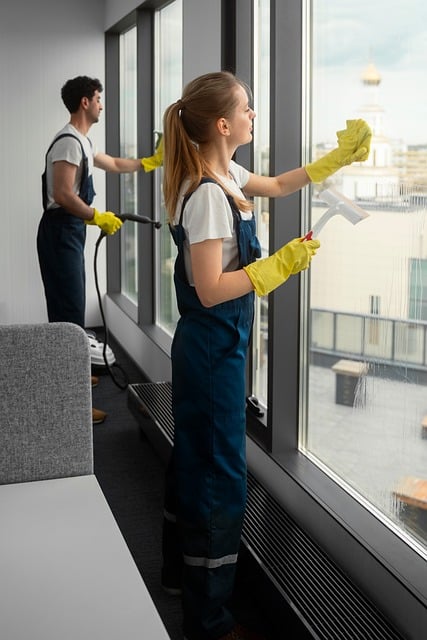Night Shift Office Cleaning Jobs: Roles, Skills, and Work Environment Overview
In 2025, night shift office cleaning remains an essential part of maintaining safe and hygienic workplaces across industries. These positions often involve independent work, attention to detail, and flexible schedules that fit outside standard business hours. This guide explains the typical duties, required skills, and working conditions for night cleaning professionals, along with general insights into employment expectations in this field.

Night shift office cleaning represents a significant employment sector within the broader facilities management industry. These positions involve maintaining commercial spaces during evening and overnight hours when offices are typically unoccupied. The work encompasses various cleaning and maintenance tasks that keep business environments functional and hygienic.
Understanding Night Shift Office Cleaning Roles
Night shift office cleaning positions involve a range of responsibilities centered on maintaining workplace cleanliness and order. Typical duties include vacuuming carpets, mopping hard floors, emptying waste receptacles, sanitizing restrooms, and wiping down surfaces in common areas. Workers may also handle specialized tasks such as window cleaning, carpet shampooing, or floor buffing depending on the facility’s needs. The scope of responsibilities often varies based on building size, industry sector, and specific client requirements. Some roles focus on general cleaning, while others may involve more technical maintenance tasks. Night cleaners typically work independently or as part of small teams, following established protocols and checklists to ensure consistent service delivery. The position requires physical stamina, attention to detail, and the ability to work efficiently with minimal supervision during overnight hours.
Skills and Qualifications Commonly Required
Most night shift office cleaning positions have relatively accessible entry requirements, though certain competencies enhance job performance and advancement opportunities. Basic literacy and numeracy skills help workers follow instructions, measure cleaning solutions, and complete necessary documentation. Physical fitness is important, as the work involves standing for extended periods, bending, lifting supplies, and repetitive motions. Reliability and punctuality are highly valued traits, given that night shift workers often operate without direct oversight. Knowledge of proper cleaning techniques, chemical handling, and safety procedures can be advantageous, though many employers provide on-the-job training. Some positions may require background checks, particularly in sensitive environments like financial institutions or government facilities. While formal qualifications are rarely mandatory, certifications in areas such as occupational health and safety or specialized cleaning techniques can improve employment prospects. Communication skills facilitate coordination with supervisors and team members, especially when reporting maintenance issues or supply needs.
Typical Work Environment
The work environment for night shift office cleaners differs substantially from daytime office settings. Workers typically arrive after regular business hours, often between 6 PM and midnight, though schedules vary by facility. The atmosphere is generally quiet and less hectic than during operational hours, allowing cleaners to work without interrupting business activities. Temperature conditions are usually controlled, though some areas like storage rooms or parking structures may be less comfortable. Lighting conditions are adequate in main work areas but may be dimmer in certain sections to conserve energy. The physical environment requires navigating various floor surfaces, stairs, and occasionally working at heights for tasks like high dusting or window cleaning. Safety considerations include proper handling of cleaning chemicals, awareness of slip and trip hazards, and following protocols for secure building access. Many workers appreciate the reduced social interaction compared to customer-facing roles, though this can also mean limited colleague interaction. The solitary nature of the work suits individuals who prefer independent working conditions.
Employment Structure and Schedule Patterns
Night shift office cleaning employment follows several common structural models. Many workers are employed directly by facility management companies or building services contractors rather than the businesses occupying the spaces they clean. Contract-based arrangements are prevalent, with cleaning companies bidding for service agreements with property owners or corporate clients. Schedule patterns typically involve evening or overnight shifts, commonly ranging from four to eight hours per night. Part-time positions are widespread, though full-time opportunities exist, particularly with larger service providers managing multiple sites. Workers may be assigned to single locations or rotate between different buildings depending on operational needs. Shift timing often falls between 6 PM and 6 AM, with specific hours varying based on building access restrictions and client preferences. Some positions offer fixed schedules, while others may involve variable hours or on-call arrangements. Weekend work is common, as many facilities require cleaning services throughout the week. The employment structure may include probationary periods, with permanent positions following successful completion of initial training phases.
Pay and Industry Trends
Compensation for night shift office cleaning positions varies considerably based on geographic location, employer type, experience level, and specific job responsibilities. Entry-level positions typically offer wages near regional minimum wage standards, while experienced workers or those with specialized skills may earn moderately higher rates. Night shift differentials, where provided, add a premium to base pay rates to compensate for unsociable working hours. Some employers offer benefits packages including health insurance, paid leave, and retirement contributions, though these are more common in full-time positions with established companies. Industry trends indicate growing emphasis on green cleaning practices, which may create opportunities for workers with knowledge of environmentally friendly products and methods. Technological advancements, including automated cleaning equipment and digital monitoring systems, are gradually changing job requirements and efficiency expectations. The sector has shown resilience during economic fluctuations, as facility maintenance remains necessary regardless of broader market conditions. Demand patterns correlate with commercial real estate occupancy rates and corporate spending on facility services. Career progression opportunities exist for motivated individuals, with pathways to supervisory roles, specialized technical positions, or facilities management careers.
Night shift office cleaning roles provide essential services that support business operations across countless industries. These positions offer accessible entry points into the workforce with opportunities for skill development and potential career advancement. Understanding the responsibilities, requirements, and working conditions helps individuals assess whether this employment path aligns with their circumstances and preferences. The sector continues evolving with changing workplace standards and technological developments, maintaining its relevance in facility management operations.




